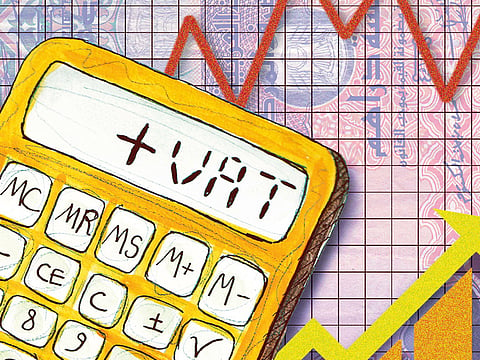Gulf governments should have a rethink on VAT
Selective changes in tax structure at times like these will benefit economies

Since the outbreak of the coronavirus, Gulf countries have taken a series of urgent measures to support the business sector, companies and individuals, to help them cope with the economic fallout. For businesses, these nations created stimulus packages in the tens of billions of dollars, cancelled several government service fees, and provided discounts on utility bills.
However, there are still some financial instruments that can contribute effectively to reducing risks posed to businesses and individuals. For example, the Value Added Tax (VAT) is of great importance in boosting economic activity and giving it momentum in difficult times. This calls for a reform of the VAT system and reconsidering it on a temporary basis.
This is what countries usually do during crises or economic stagnation, simply because it is difficult to see the continued application of the same VAT rates for many years in any one country.
Bring on the change
Therefore, accelerating VAT reforms for the next few months is one of the most important ways of support and can contribute greatly to helping economic sectors restore their activities after the virus outbreak recedes. It is also equally imperative to conduct a study by the end of this year to examine the UAE’s two-year experience in the implementation of the VAT and make decisions based on the “cost and benefit” principle.
Moreover, the study is important since the application of VAT by GCC countries has been characterised by some shortcomings, besides the obvious advantages, as an indispensable financial instrument.
Nevertheless, the shortcomings can be understood since taxes are a relatively new addition for Gulf nations’ economic systems. In addition, the GCC’s tax administrations need to gain more experience to boost tax receipts.
Gold trade could be a test case
Implementing and then removing VAT on the gold trade can be an example of how the flexibility that can be applied during the reassessment. Therefore, this tax requires a comprehensive reform including for example the VAT rate and the classification of sectors included.
It is also vital to understand the situation of the GCC countries that have implemented such a taxation, and their relationship with the remaining member-states, who are either reluctant or have decided not to apply VAT. It is also important to gauge the dynamics within the GCC Common Market.
This is in addition to the many questions still associated with the implementation of the VAT and the current difficult economic conditions, which requires additional support way beyond VAT reforms.
Subsidise where necessary
They require subsidizing consumer purchases by suspending tax on food and beverage and temporarily reducing it for vital sectors to save hundreds of businesses severely affected by measures taken to combat the coronavirus.
Such a change needs a comprehensive look at the economy. It is true that the treasuries will lose part of their revenues, but it is also true the rapid pace of recovery of sectors and vital activities will lead to the return of economic growth. It will lead to the organic increase in fees for services provided by the country, which may be less than the collection of VAT charges.
However, it is necessary in such circumstances not to calculate what has been lost and the returns achieved. In the current situation, it is more important for the economic cycle to return to its previous level and thus save as many companies as possible, and facilitate individuals’ purchases.
The most important of these gains is preservation of the economy and curbing job losses, while laying down strong basics for development to restart.
- Mohammed Al Asoomi is a specialist on energy and gulf economic affairs.







